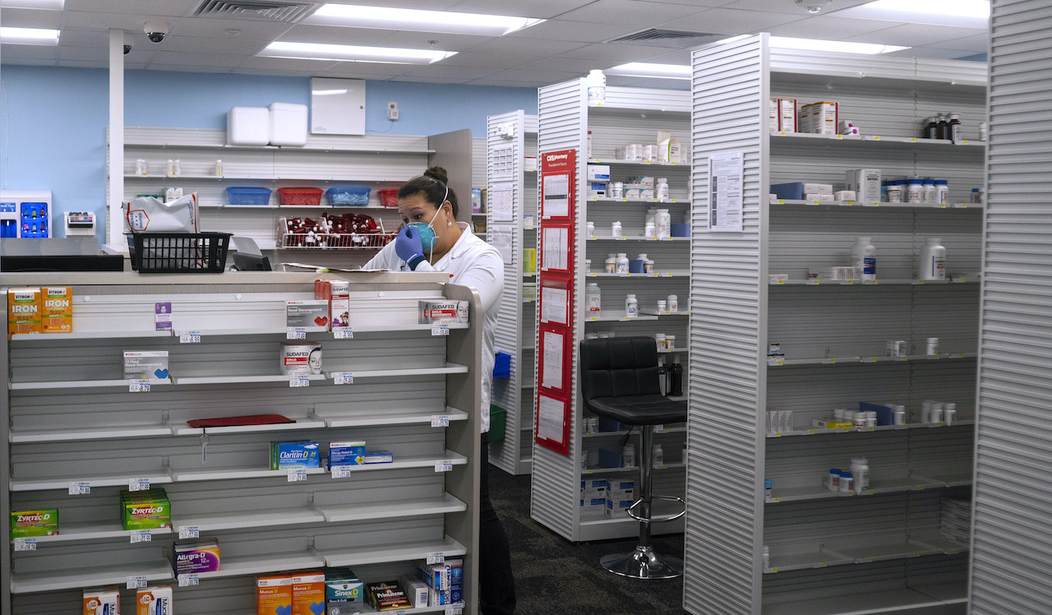Congress is considering new bipartisan legislation that has a noble goal and an irresistible name: The Biosimilar Red Tape Elimination Act.
Who could oppose a bill like that? Surely, everyone supports getting rid of unnecessary bureaucratic hurdles that prevent patients from accessing "biosimilars" -- more affordable alternatives to brand name biologic drugs.
Unfortunately, the devil is in the details. Despite the fantastic branding, and lawmakers' genuinely good intentions, the Biosimilar Red Tape Elimination Act could actually slow down the approval of low-cost biosimilar medicines and hurt patients.
All brand name drugs eventually lose market exclusivity, enabling other drug manufacturers to introduce knockoff versions and drive prices down. In the case of generic drugs, the same active chemical ingredient is at work in both brand name "small molecule" medicines and FDA-approved generics. In many cases, these drugs are generally deemed interchangeable by the FDA. You can take the brand name or any of the generic competitors and expect the same health benefit without any significant change in side effects. In fact, you can go back and forth from one manufacturer to another without worry.
The Biosimilar Red Tape Elimination Act seeks to apply the same principle to biologics -- medications that are grown from living cell lines, rather than synthesized chemically. Biologics likewise face competition from other follow-on drug makers when their exclusivity lapses. These follow-ons are known as biosimilars. But unlike generics, biosimilars are not necessarily the same as the brand name medicines they seek to copy.
To be approved by the FDA, a biosimilar also must not meaningfully differ from its reference biologic in terms of clinical benefit, safety, and potency. Even biosimilars that meet these strict standards will not necessarily be deemed "interchangeable" with their reference biologics. That official "interchangeable" status requires an additional determination by the FDA.
Recommended
The advantage of "interchangeable" status is that subject to individual state law, a pharmacist can automatically substitute a prescription for a reference biologic with the less expensive interchangeable biosimilar. Without the interchangeability designation, the pharmacist would have to check in with the prescribing doctor for approval before making the switch.
Right now, the FDA has great discretion in determining how much -- if any -- additional testing a new biosimilar must undergo to receive an additional "interchangeable" designation.
In some cases, agency experts ask for additional clinical trials to assess whether going from a brand name biologic to a biosimilar creates any health risks. Since biologics and biosimilars aren't identical, switching and alternating between biosimilars and reference products can provoke immune reactions and other side effects. In other cases, the agency has been able to determine no additional testing is necessary. In still other cases, drug makers have sought and won approval for a biosimilar but declined to seek a designation of interchangeability.
In short, the FDA currently has wide latitude in making these decisions.
The Biosimilar Red Tape Elimination Act would strip FDA experts of this discretion. Instead, the bill would automatically designate any FDA-approved biosimilar as interchangeable.
Lawmakers hope that by eliminating the potential requirement for further "switching" studies, the reform will speed up the delivery of biosimilars to patients.
They have good intentions. But the bill may actually have the opposite effect.
If the FDA can't require studies to determine the risks of switching patients between the reference biologic and a biosimilar, it may become more difficult for the FDA to approve biosimilars in the first place. That is because under the legislation, the FDA would only be able to approve biosimilars if the agency believed those biosimilars could be automatically substituted at the pharmacy. By taking away the agency's ability to require the studies often needed to confirm whether such substitution is safe, the bill could inadvertently force the FDA to refuse to approve a new biosimilar altogether.
Biologics are the fastest growing sector of the pharmaceutical industry, with the potential to address some of modern health care's most obstinate challenges. Tying the FDA's hands over biosimilar approval standards won't reduce red tape, but it will slow the delivery of biosimilars to patients.
Dr. Wolfgang Klietmann is a former clinical pathologist and medical microbiologist at Harvard Medical School.

























Join the conversation as a VIP Member